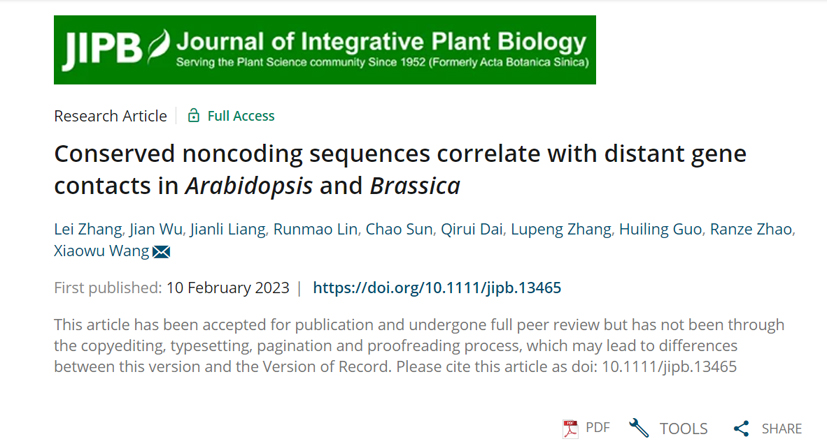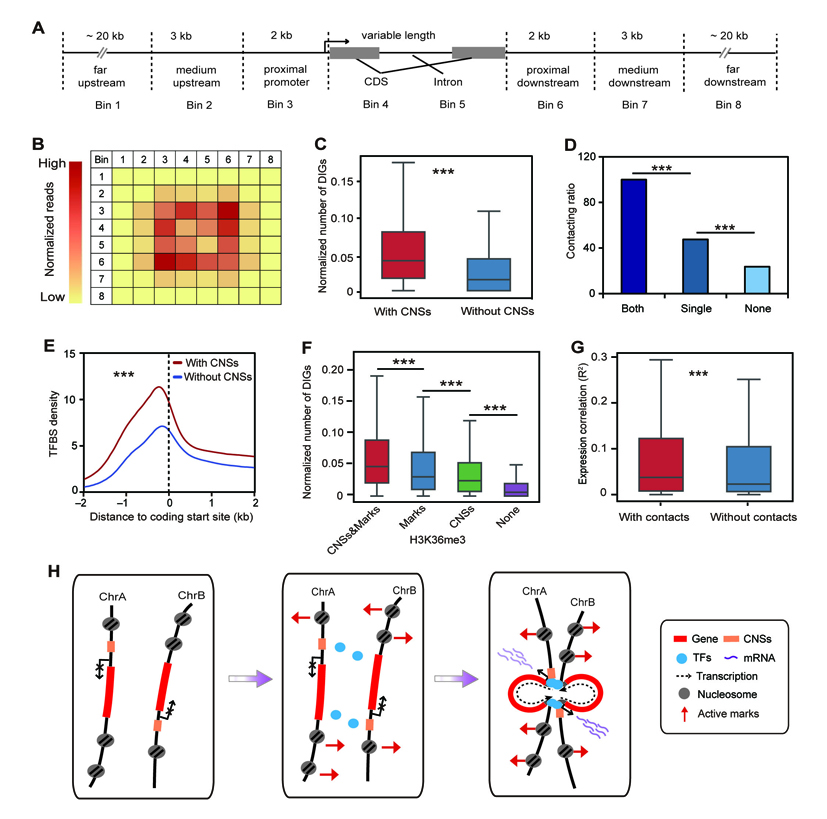Eukaryotic chromatin folds in a three-dimensional manner in the nucleus, and this spatial structure involves important activities of cells. Gene expression in cells is regulated by protein factors such as transcription factors (TFs) and enhancers, and their interaction affects the three-dimensional architecture of chromatin. Conserved non-coding sequences (CNSs) are involved in the recruitment of regulatory proteins such as TFs and enhancers. However, whether CNSs are involved in long-range gene interactions is unclear.

Recently, the innovation team of vegetable molecular design and breeding at the Institute of Vegetables and Flowers of the Chinese Academy of Agricultural Sciences published a research article entitled "Conserved Noncoding sequences correlate with distant gene contacts in Arabidopsis and Brassica". This study found that CNSs are involved in the long-range chromatin interaction between genes. CNSs enrich active histone modifications and recruit TFs, which leads to long-range interaction between the promoter region of a gene and the downstream region of another gene, and finally regulates the co-expression of interacting genes.

The team used Hi-C technology to obtain the genome-wide chromatin interactions of Chinese cabbage (Brassica rapa) and cabbage (Brassica oleracea), and further combined with the Hi-C data set analysis of Arabidopsis thaliana. The results showed that genes on different chromosomes were frequently interacting, which were mainly focused on the promoter region of a gene (2 kb upstream of the 5' end) and the downstream region of another gene (2 kb downstream of the 3' end). They further found that genes with more CNSs had a higher frequency of long-range interactions, more transcription factor binding sites, and active histone modification marks. In addition, these interacting genes with CNSs prefer to be co-expressed in Arabidopsis and Brassica. This study reveals a new mechanism for CNSs to participate in long-range gene interactions, in which CNSs are enriched for active histone modifications and participate in the recruitment of transcription factors and further mediate the long-range interaction between the 5' end of a gene and the 3' end of another gene, ultimately ensuring Coordinated expression of interacting genes.
This study reveals the important roles of conserved non-coding sequences in long-range interactions of genes in vegetables. Zhang Lei, a postdoctoral fellow at the Institute of Vegetables and Flowers, Chinese Academy of Agricultural Sciences, is the first author, and Professor Wang Xiaowu is the corresponding author. The research was supported by the State Key Laboratory, National Key R&D Program, Basic Research Operation Fund, Innovative Engineering Project, and China Postdoctoral Science Fund.
Original link: https://onlinelibrary.wiley.com/doi/10.1111/jipb.13465